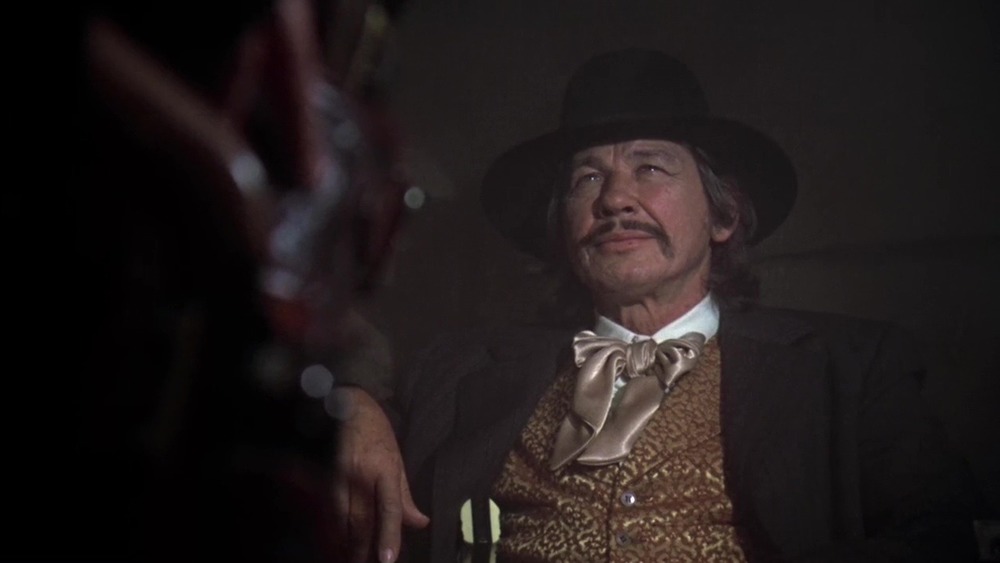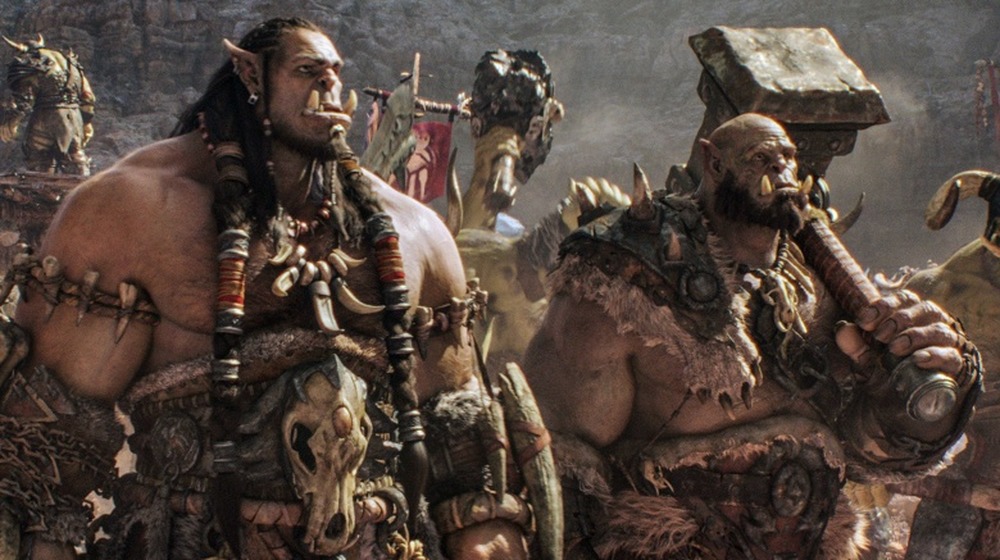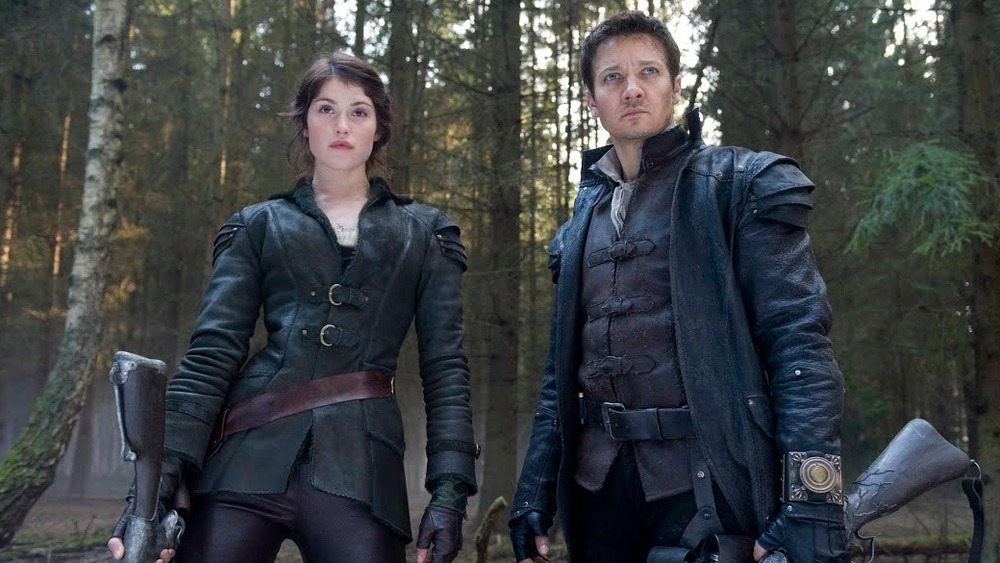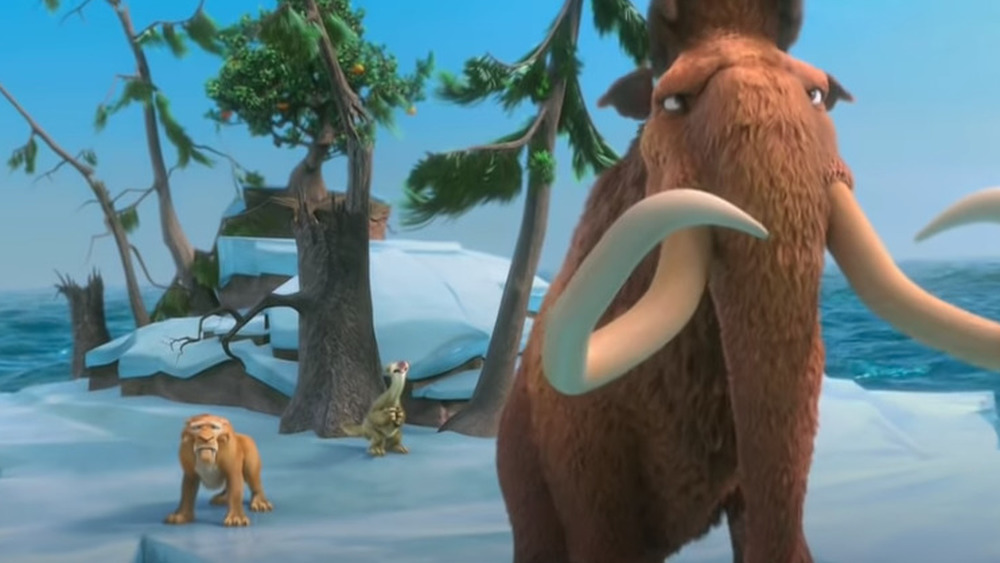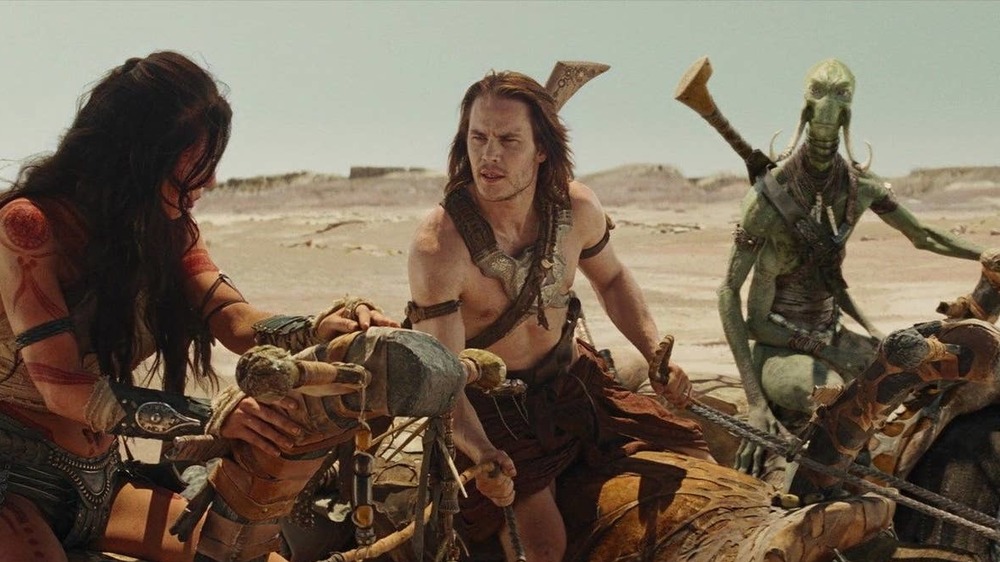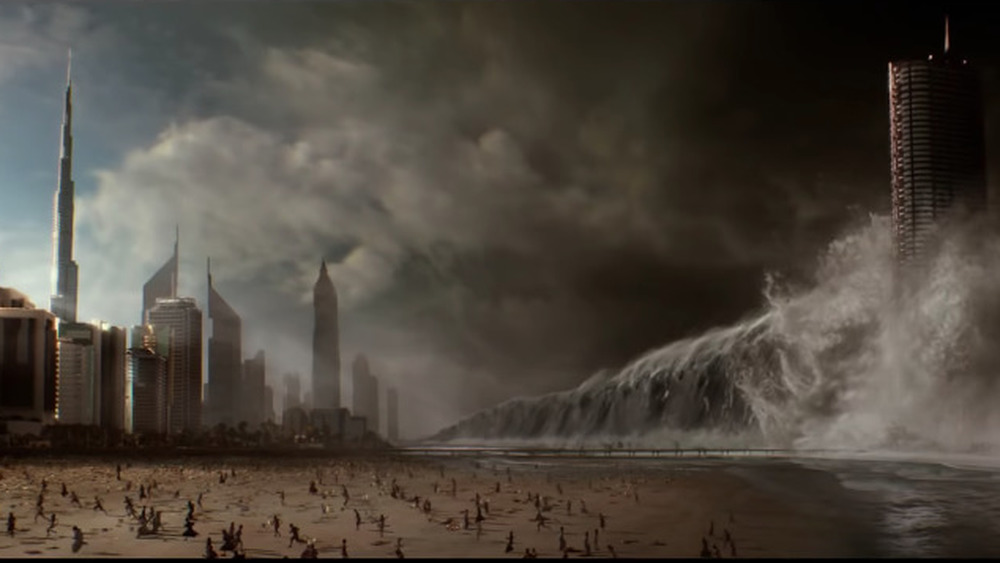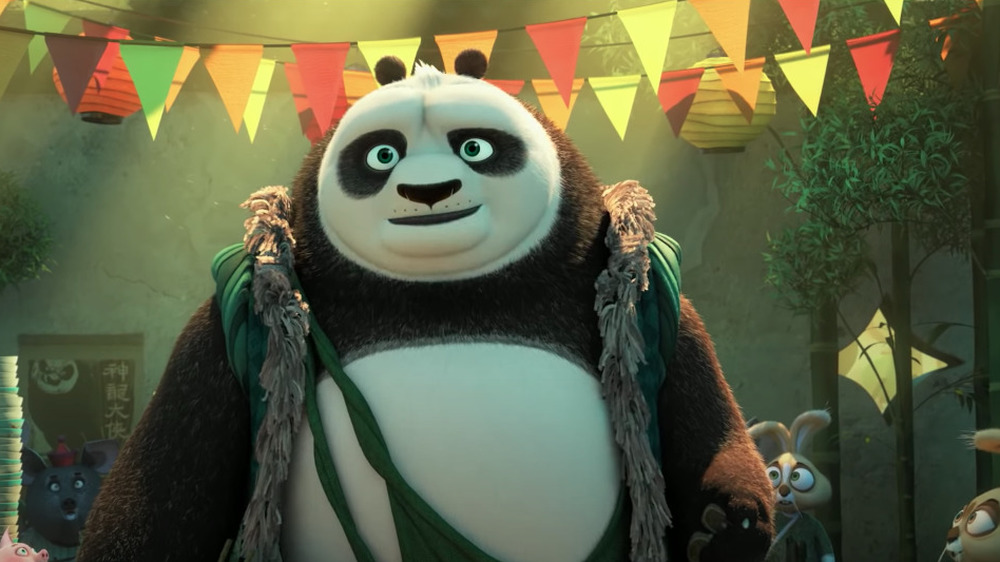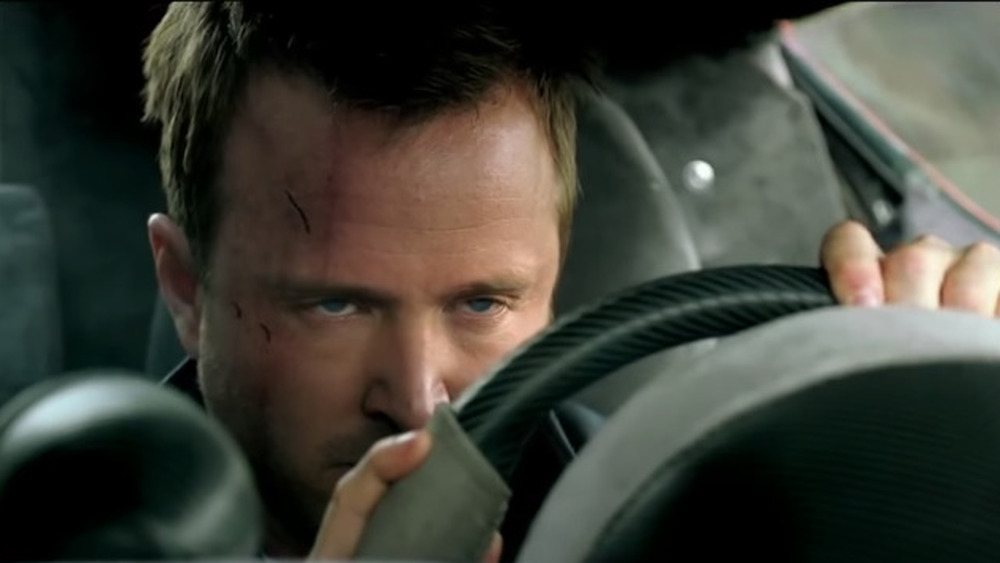American Movies That Other Countries Liked More Than Americans
What American movies did other countries liked more than Americans? The U.S. has always boasted a hugely successful film and television industry; there's a reason why so many filmmakers head to Hollywood to make their dreams come true!
So, it should come as no surprise to learn that there's a huge international audience for American movies, too. In fact, in some cases, international audiences seem to like America's movies even more than we do! For example, an old movie called The White Buffalo has become a cult favorite in Asian countries. Additionally, the box office flop Hansel & Gretel: Witch Hunters was so successful overseas that they decided to make a sequel just for international audiences. And while Americans loved Mamma Mia!, it turns out, British audiences loved it even more.
To that end, we've done some digging to uncover the movies that didn't take off in this country, but thrilled international audiences. Here are the American movies that other countries cannot get enough of.
Charles Bronson's The White Buffalo was a cult success in Asia
Charles Bronson's 1977 movie The White Buffalo attempted to combine two genres: horror and western. But if you haven't heard of it, there's a pretty good reason, as the movie didn't exactly thrill American audiences. In fact, it currently has a 25 percent rating on Metacritic, and a review in the Radio Times gave the film one star and wrote, "This is a real clinker."
However, while American audiences certainly didn't taken to this bizarre flop, Asian countries seem to have embraced the film. As one reviewer explained, it's still a cult favorite in certain Asian countries. Additionally, in 1974, film critic Roger Ebert explained that Charles Bronson, the film's star, had become a huge box office draw in Europe, Asia, and the Middle East rather than in America. And apparently, the actor's name was displayed on a huge, block-long sign in Japan. Maybe Bronson is the reason The White Buffalo was such an unexpected success in Asia.
Warcraft did much better in China
The 2016 action-fantasy film Warcraft was meant to be a huge success in America. Based on the popular video game series World of Warcraft, the film was expected to sweep up at the box office, so the producers of the film poured money into the project.
As The Hollywood Reporter revealed, the film would have needed to make $400 million overall to break even. However, Warcraft was not a success for domestic audiences; it received some horrific reviews (such as this pan from The Guardian), and it made only $24.4 million in its first five days.
However, Chinese audiences seemed to enjoy the film much more than American movie-goers. As Time reported, almost half of the world's World of Warcraft video game players live in China. In fact, the game is so popular there that the country has produced professional World of Warcraft players. It's no wonder this film was so popular in China!
The Brits absolutely loved Mamma Mia!
While Mamma Mia! was hardly a failure in America, it's pretty clear that audiences in the UK were even bigger fans of the uplifting musical. In America, the movie took in $144 million; in the UK, it took in $94 million (via Box Office Mojo). However, despite earning more in America, the popularity of Mamma Mia! in the UK is still more widespread. As The Guardian reported, the movie ended up becoming the country's highest grossing movie of all time, beating Titanic. This was likely due to some die-hard fans in the UK who reportedly saw the film in cinemas multiple times. A karaoke "sing-along" version of the movie was even released in the UK, much to British fans' delight.
While it's hard to know why this movie was so successful in the UK, it may be due to the enduring popularity of ABBA's music across the pond. As the Financial Times noted, when ABBA released their comeback greatest hits album in 1992, they had 17 platinum hits in the UK and only six in the US.
Robocob was a hit in China thanks to its conversion to 3D
A re-make of the 1987 film Robocop, the futurist action movie about a part-man, part-robot cop was released in 2014. Bearing the same name, its domestic takings at the box office were just $58.6 million. But internationally, it made a staggering $184 million (via Box Office Mojo). It turns out, much of this international success was due to the audiences in China.
According to Forbes, Robocop was converted to 3D just for its Chinese release, which added to its success in Asia. The Hollywood Reporter also put the film's Chinese success down to its conversion to 3D. Li Chow, the general manager of Sony Pictures Entertainment China, said, "We are very excited by the success of Robocop in China... Chinese audiences embraced Robocop due to its great visual effects and the fantastic 3D version shown in China." It sounds like Chinese audiences loved the visual elements of the film much more than the Americans did.
Hansel & Gretel: Witch Hunters' international success even warranted a sequel
It would be easy to think that Hansel & Gretel: Witch Hunters would have been a bit hit in America; this Hollywood production starred Jeremy Renner and Gemma Arterton as witch-killing bounty hunter siblings. However, only 25 percent of its box office takings came from America, and most western critics weren't too impressed. For example, Peter Bradshaw for The Guardian wrote, "It's a film which is so demeaningly bad, so utterly without merit, that there is a kind of purity in its awfulness."
Fortunately for the film's producers, international audiences didn't agree — a whopping 75 percent of its revenue came from fans outside of the States. Based on the stats from Box Office Mojo, Hansel & Gretel: Witch Hunters did exceptionally well in Russia, Germany, and Brazil in particular.
As HuffPost reported, despite being a domestic flop, the international reception to Hansel & Gretel: Witch Hunters was so good, producers even decided to commission a sequel. It's clear that the international market for relatively low budget action films is pretty high — and Hollywood will probably keep making them, even if domestic audiences aren't too impressed!
Life of Pi made most of its revenue overseas
The 2012 film Life of Pi did well in America, raking in almost $125 million at the box office. However, internationally, it did even better, taking in a total of $484 million. The film was especially popular in China, where it made over $90 million (via Box Office Mojo).
As USA Today reported, Life of Pi's success with international audiences may have been due to the studio's marketing tweaks region by region. Paul Hanneman, president of international distribution for 20th Century Fox, explained his approach. Apparently, in Europe and Asia, they played up the film's spirituality, while in Latin America, marketing focused more on family. "You have to learn to work across cultures," he explained.
While the international audiences were hugely important for Life of Pi, Hanneman still noted that its success in America was also vital. "I don't think you're going to see movies that appeal only internationally," he said.
Joker was a huge international hit, especially in England
You probably already know that Joker was one of the biggest films of 2019, taking in $335 million domestically. However, that impressive number pales in comparison to the staggering international box office revenue: Joker brought in a jaw-dropping $738.8 million overseas. In America, Joker was the 62nd highest grossing film of all time, while in the UK, it ranked 49th. And in other European countries, Joker did even better. In Portugal, it was the 6th best-selling film ever and in Serbia and Montenegro, the 5th best ever. It's clear that Joker was a huge hit with European audiences.
As Deadline pointed out, Joker came from a superhero franchise — something it had in common with many other international hits from the same year. Additionally, according to Andrew Crisps, president of international theatrical distribution at Warner Bros. Studios, "[The UK is] a strong DC market," he explained in an interview with Screen Daily. "The in-built love for the character gave us a great kick-start, but that's only part of the story." He added that their UK marketing strategy had been prepared to push the film on British audiences. It certainly worked!
Ice Age: Continental Drift made four times more in international releases
Ice Age is definitely a fan favorite in America, especially among kids. However, it turns out Ice Age: Continental Drift did even better upon its release with international audiences. In fact, according to Grantland, it made four times as much with overseas movie-goers than it did in America. At the time of its release, the Los Angeles Times noted that talking animals tend to do well with international audiences.
Additionally, The Hollywood Reporter looked into Ice Age: Continental Drift's international success in more detail. Apparently, the movie was especially popular with Latin and South American audiences, breaking multiple records in several countries. In fact, it became the number two top-selling film of all time in Latin America. And in France, the movie became the top grossing movie of the year. It sounds like this film did a great job of melting audience's hearts just about everywhere else but America!
Transformers was a massive hit in China
It's pretty clear that Chinese movie-goers seriously love American action films — and Transformers was no exception. According to Grantland, it became the number one overall movie in China. Its sequel went on to nab the number two spot. Later, the fourth Transformers film beat out the first film for the number one spot.
As Time reported, the franchise was practically made for Chinese audiences, so it's easy to see why it was received so well there. Additionally, Transformers was mostly filmed in China and was released in Hong Kong. The film also used Chinese actors and Chinese filmmaking resources. In fact, based on how Chinese-centric the film is, it can hardly be called an "American" film at all, aside from the language and the production team! It's easy to see why Chinese audiences lapped it up — and why Americans were less than impressed. One critic from the Rolling Stone actually gave it zero stars!
Russia loved John Carter
John Carter came out in 2012. The science fiction film, directed by Andrew Stanton, told the story of a war veteran who travels to Mars. The movie received largely mediocre reviews and only took in $73 million in American ticket sales (via Box Office Mojo).
However, while the movie didn't make much of a splash at home, there was one country where audiences lapped it up: Russia. As Russian producer Alexander Rodnyasky wrote in a Russian business paper called Vedomosti (via IndieWire), John Carter enjoyed "one of the best openings in modern Russian cinema history; moreover, it happened without a wall-to-wall bombardment of advertising on Channel 1."
Why the success? As Rodnyasky put it, John Carter "is so far from what people know that they are carried away by it." He went on to explain that Russian audiences seem to prefer "fantasy, fiction, and animation" to "anything which bears any resemblance to the real life of this country and its people." It sounds like the Russian audiences loved John Carter as it served as a much-needed distraction from reality.
Baywatch was a flop in America but did well overseas
The 2017 reboot of Baywatch starred Dwayne Johnson, David Hasselhoff and Zac Efron — but these stars failed to draw in American audiences. As Deadline reported, the movie ended up making 63 percent of its box office sales from overseas movie-goers.
The overseas success of Baywatch probably could have been predicted. After all, the original TV show in the '90s was a huge hit internationally. Plus, Johnson seems to be a real hit with international movie-goers.
One country that reportedly loved Baywatch was Germany, where the movie ended up making the most money of any country other than America (via Box Office Mojo). As Deadline explained, Hasselhoff may have been the reason for this success as he's always a big draw for Germans and Austrians alike. Even though he only plays a small part in the film, polls of audiences reportedly showed that they loved seeing him on their screens.
Geostorm made a storm in China
Geostorm was a 2017 science fiction thriller starring Gerard Butler and Andy Garcia. It wasn't a huge success in America and was soundly beaten at the box office by the Blade Runner reboot. However, as Forbes reported, the film was a massive hit in China. Apparently, Geostorm's success overseas was largely due to one major marketing change: for the Chinese release, they swapped Butler and Garcia's faces out, and instead made actor Daniel Wu the star. In China, the film earned $10 million, while in America, it only earned $4.3 million.
Wu, who is an American born actor with roots in Shanghai, is particularly popular among Chinese audiences. Apparently, his casting in the movie was pretty calculated, as the director knew giving him a large role would draw in plenty of movie-goers in China. It's clear that the decision paid off — this movie received a whole lot more attention in China than it did over here in the states.
Chinese audiences loved Kung Fu Panda 3
Plenty of Americans adore the Kung Fu Panda franchise. However, it's in China where audiences really love the lovable, crime-fighting panda. While Kung Fu Panda 3 made a hefty sum of $143.5 million in the U.S., it was in China where the movie really thrived, making $154 million (via Box Office Mojo). Talk about getting a boost from the overseas audiences!
As The Hollywood Reporter noted in 2016 at the time of Kung Fu Panda 3's release, it became the best-selling animated feature in China's history. Apparently, the success was probably due to the fact that Oriental DreamWorks, who helped make the film, managed to release the film in both English and Mandarin. Using advanced technology, the Mandarin version synced up the characters' voices with their movements. As CEO James Fong said, "We are especially excited by the warm reception of our Mandarin version of the movie." Sounds like this company has hit upon a winning piece of technology for future American animated films heading to China.
The Golden Compass was a huge hit overseas
The 2007 adaptation of the popular kids' fantasy book The Golden Compass was a bit of a disappointment in America, making only $70 million at the box office. However, luckily for the film's producers, the movie made much more money overseas. In fact, overall, its international revenue was a staggering $300 million (via Box Office Mojo).
The Golden Compass was particularly successful in the UK, where it made $53 million. As Screen Anarchy noted, later films with the same figures would also be deemed hits, even if they failed with domestic audiences. Plus, it makes sense that The Golden Compass did better overseas, as the original books have more fans in Europe. Maybe this project should never have been made with only American audiences in mind after all! In fact, the novel was made into a BBC series in 2019 (for British audiences) and unsurprisingly, it was a huge hit. It actually became the most-watched show in the UK for five years at the time (via the Independent).
Need for Speed was another big hit in China
Sensing a pattern? Chinese movie-goers seem to absolutely love American action movies, and Need for Speed was no exception. The 2014 action thriller (based on the video game of the same name) starred Aaron Paul, Dominic Cooper, and Imogen Poots, all pretty big names in Hollywood. Nevertheless, it was pretty much a disaster in American cinemas, drawing in only $43 million.
Luckily, Chinese audiences rescued Need for Speed. In fact, in China, the film made $66 million (via Box Office Mojo). Additionally, Need for Speed was such a big hit in China that the country started clamoring for a sequel. As The Wrap reported, Chinese company China Movie Channel was involved with commissioning the sequel. "We are... delighted that much of Need for Speed 2 would be filmed in China," Yin Cao, chairman of the company, said. "We believe it will include much more Chinese talent and elements," he added. Cao went on to say, "This venture is another great endeavor to bridge the cultures between China and the West through films."

